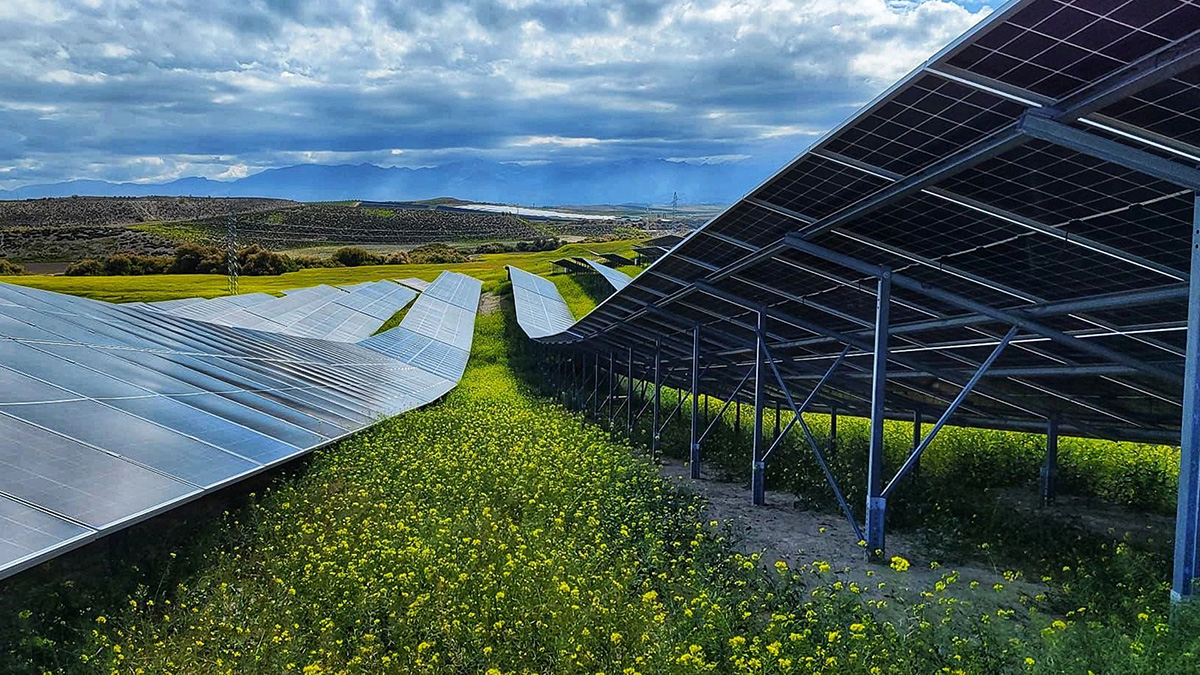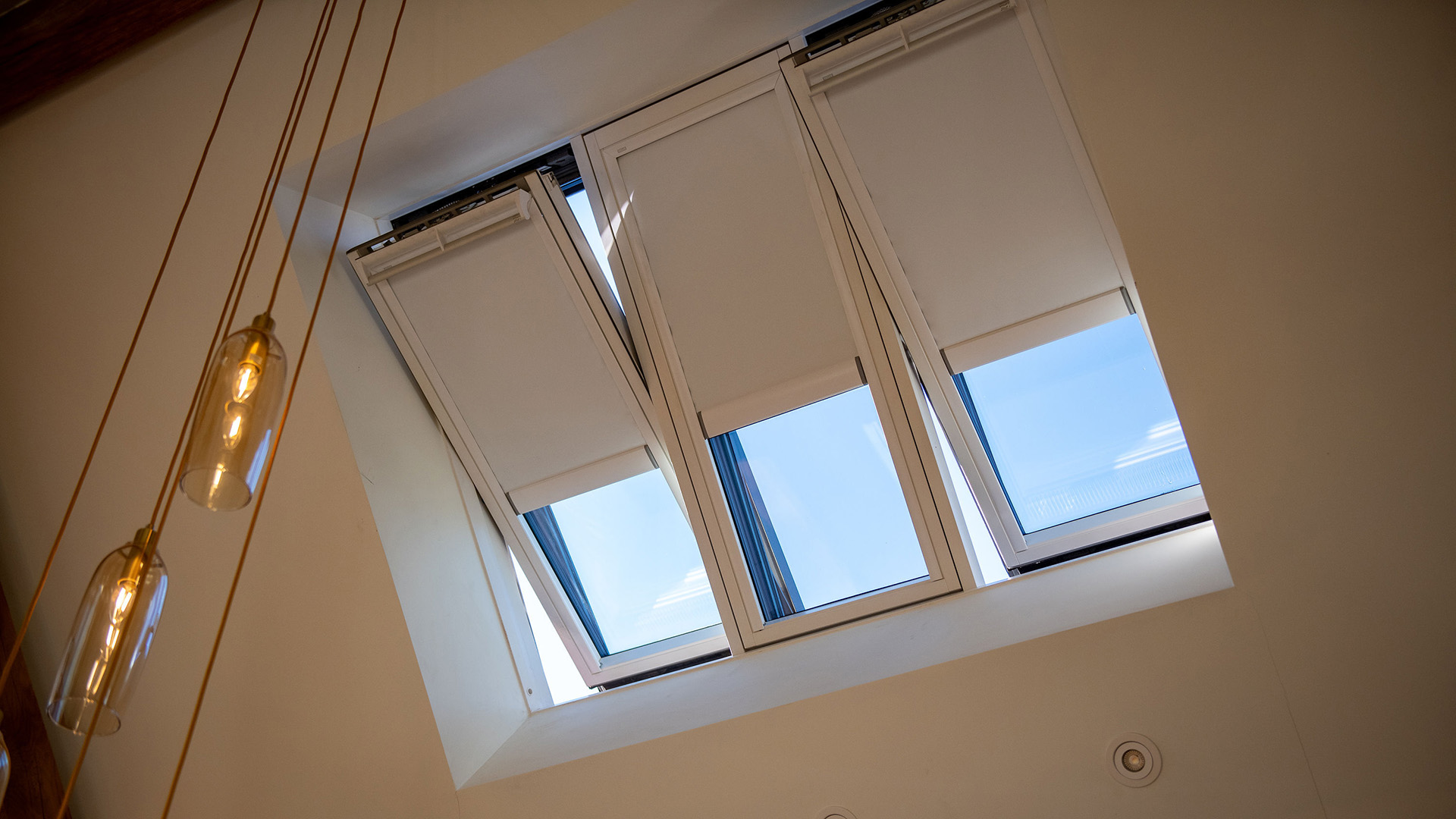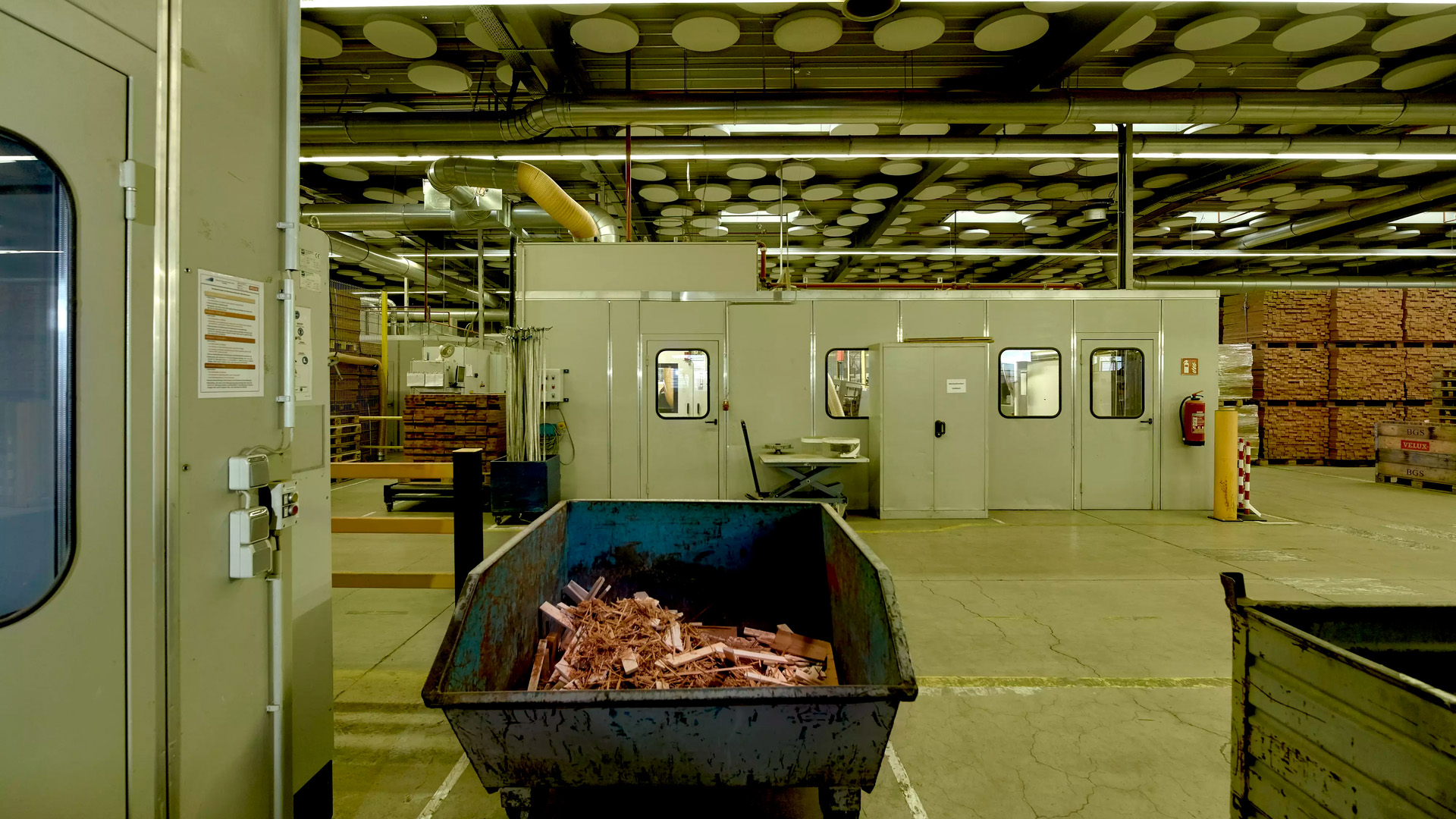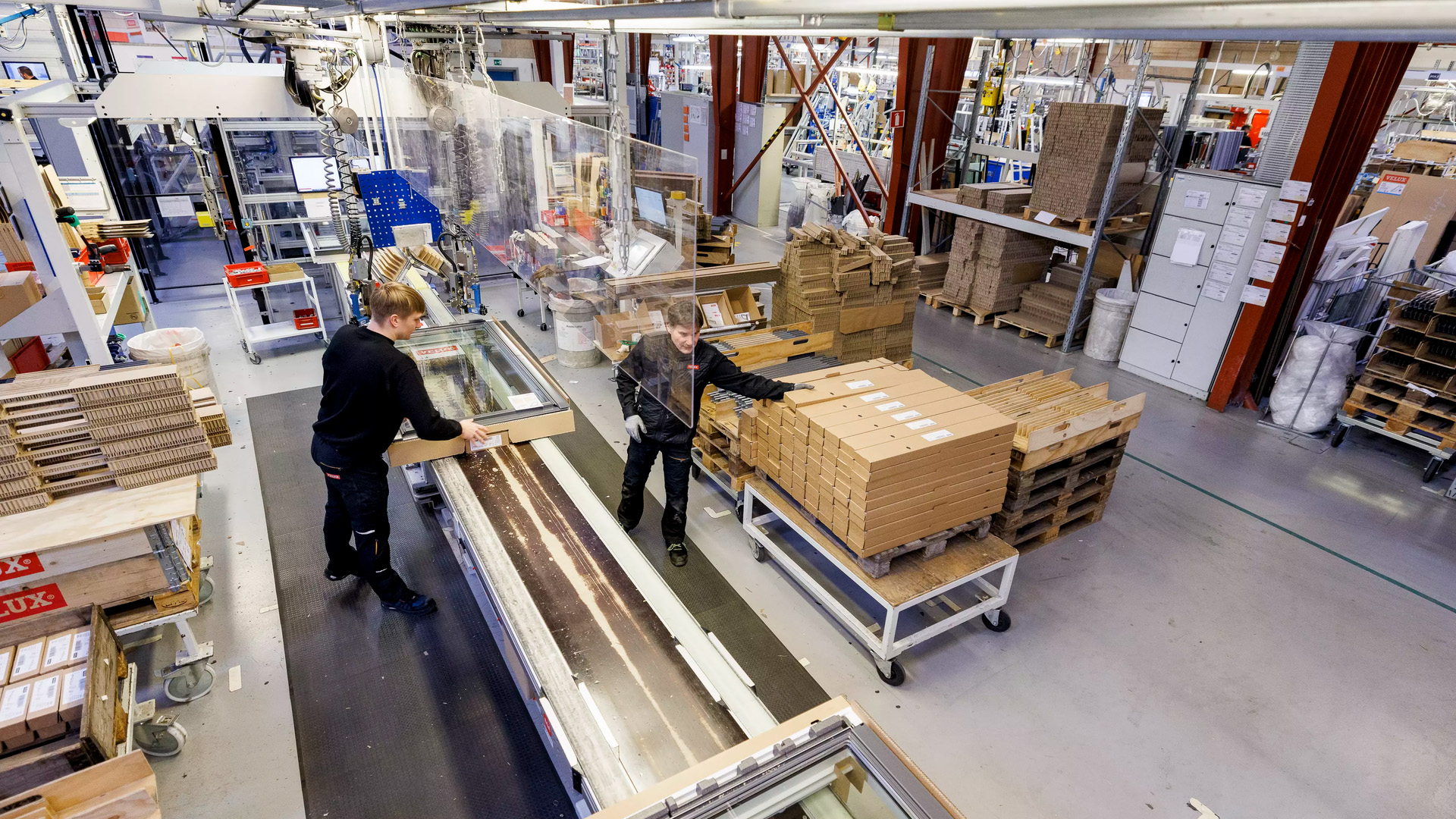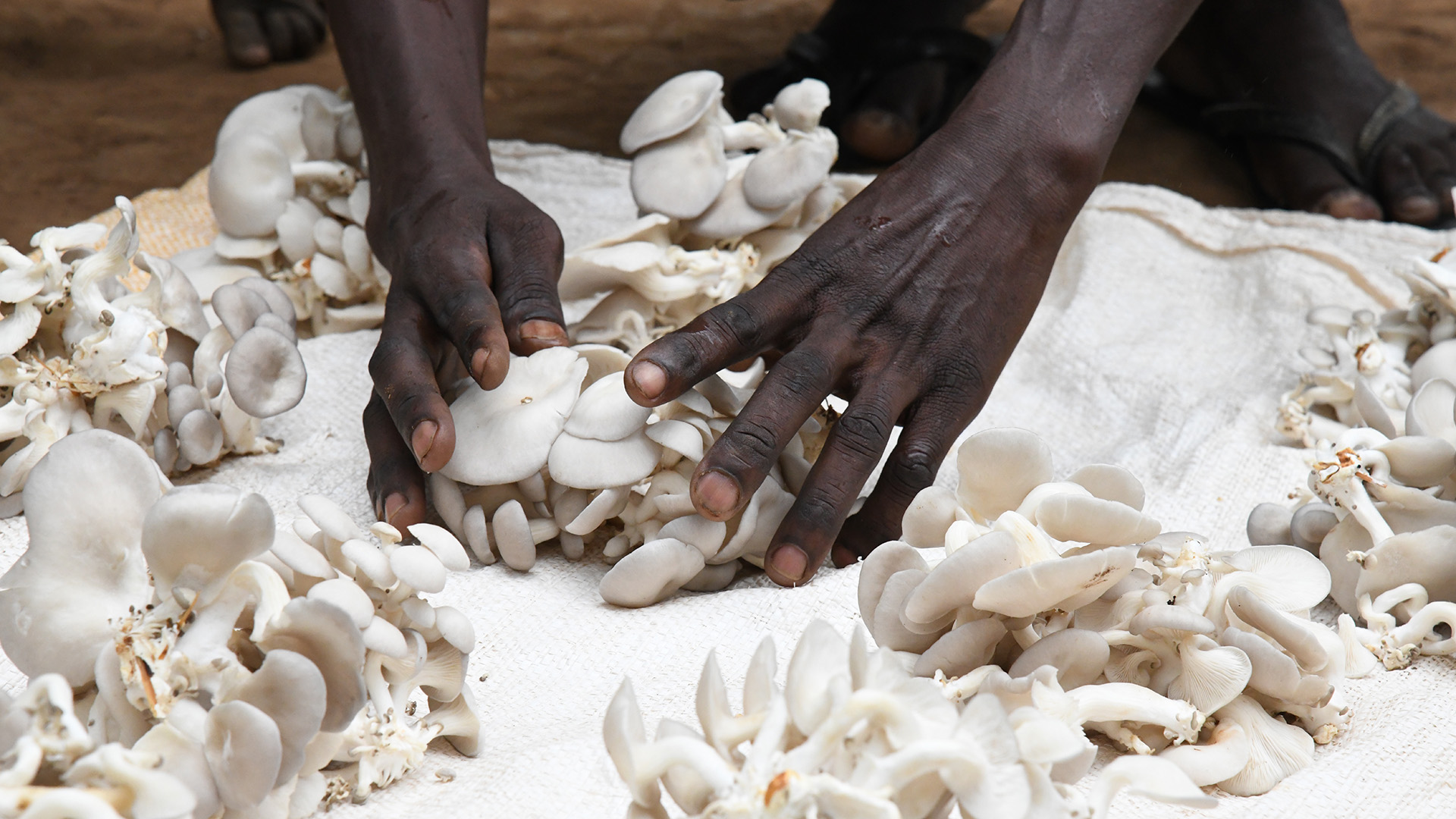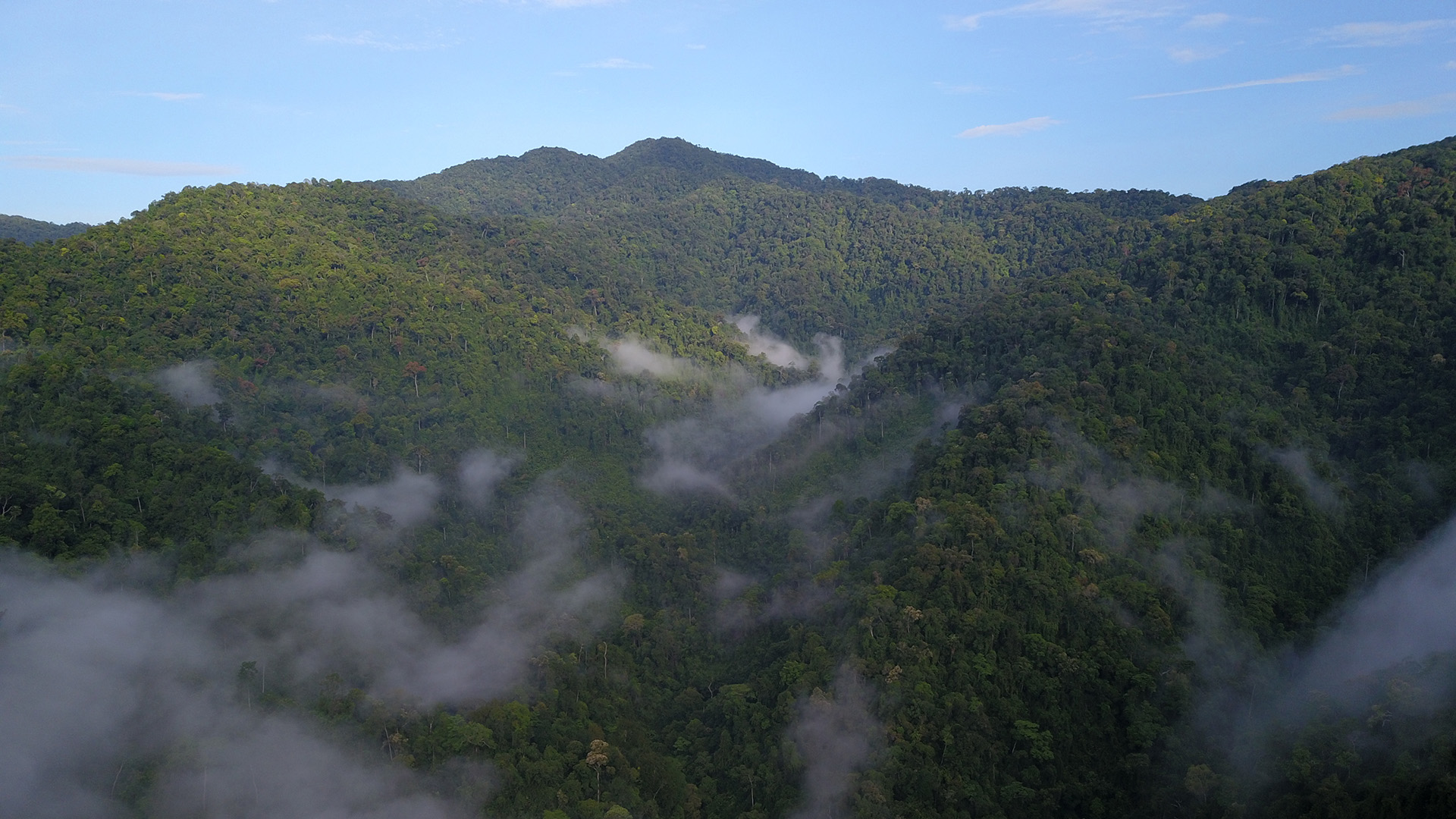In the Albertine Rift in Uganda, where we have financed the first forest project developed and delivered by WWF, local communities are an important part of the regeneration of the forest. Their involvement is vital for reversing forest and biodiversity loss and addressing climate issues.
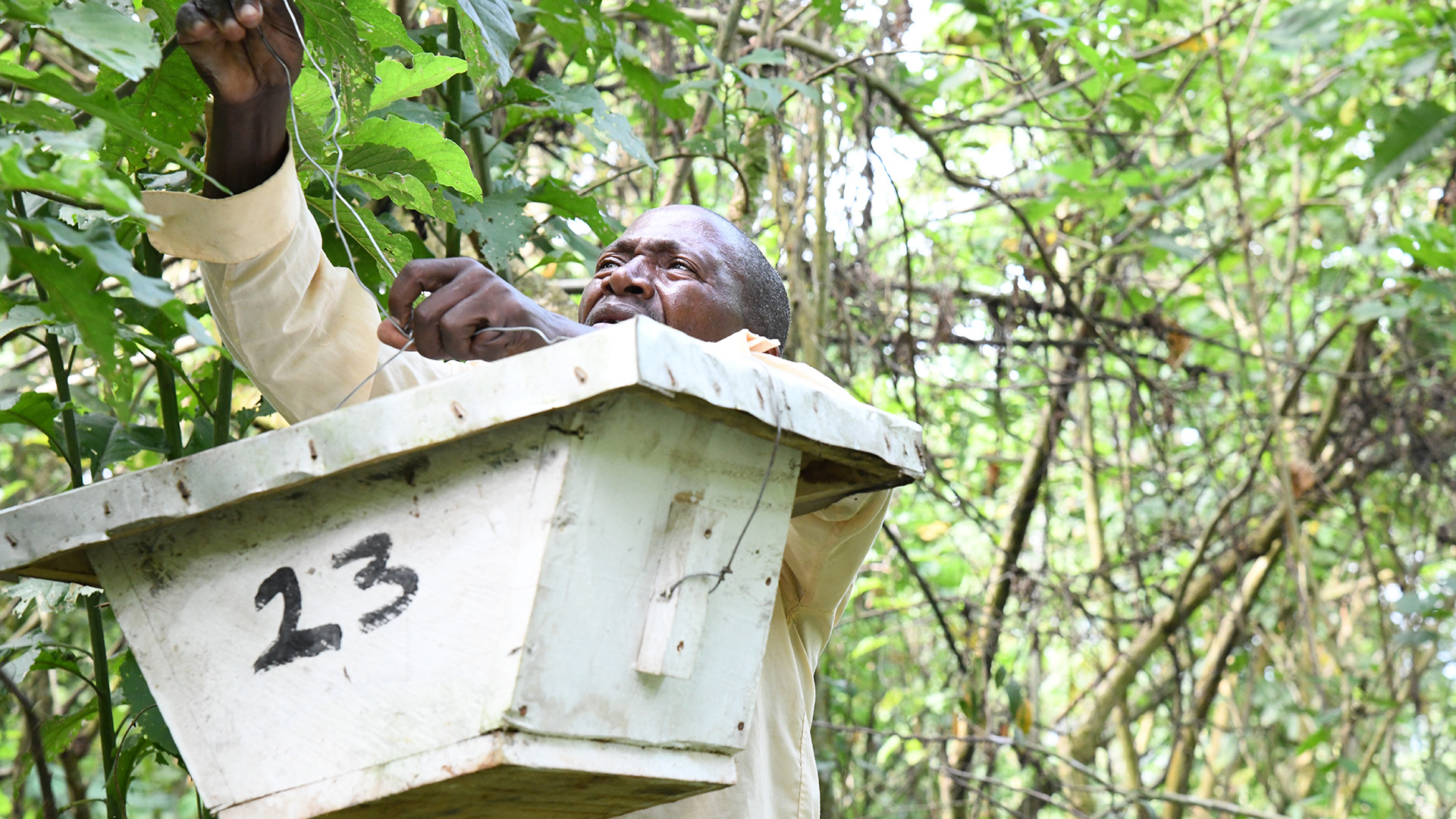
Beekeeping and apiaries
Around Kagombe Central Forest Reserve in Western Uganda, community groups are establishing apiaries. Following technical training on how to set up and manage the beehives, the group established 200 hives by the end of 2023.
“We have been taught by NFA (Ugandan National Forestry Authority) and WWF that as beekeepers we rely on the forests for bees to pollinate our crops and produce honey from wildflowers and trees. To sustain our new business, we must allow the forest to regenerate and in turn, increase our returns on honey to be harvested.”
- Edward Mutaabazi, Chairman of Nsugasug Environment Conservation Association
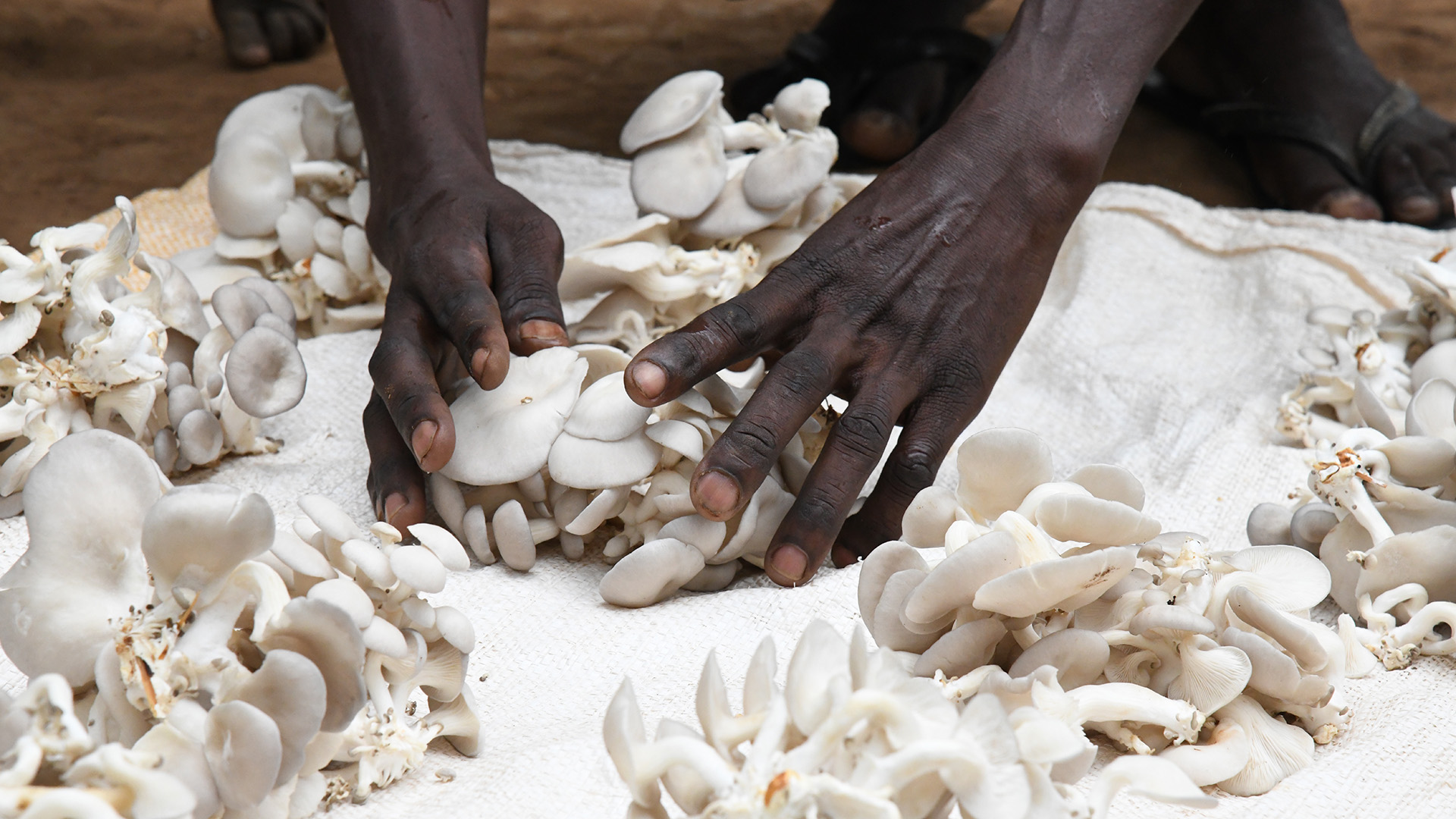
Mushroom growing
Katusabe Olive, aged 35, used to depend on the forests to source wood to make charcoal. Today she is chairperson of the Aberteraine Women’s group-Kiswaga consisting of 85 members who have all been trained to grow mushrooms, as a source of income and food. The mushrooms are ideal for growing in this area as they have a short production cycle, which generates a regular source of income.
“We didn’t know anything about growing mushrooms at home. We used to rely heavily on the forest for food, fuel, and even income.”
- Katusabe Olive, Chairperson of the Aberteraine Women’s group-Kiswaga
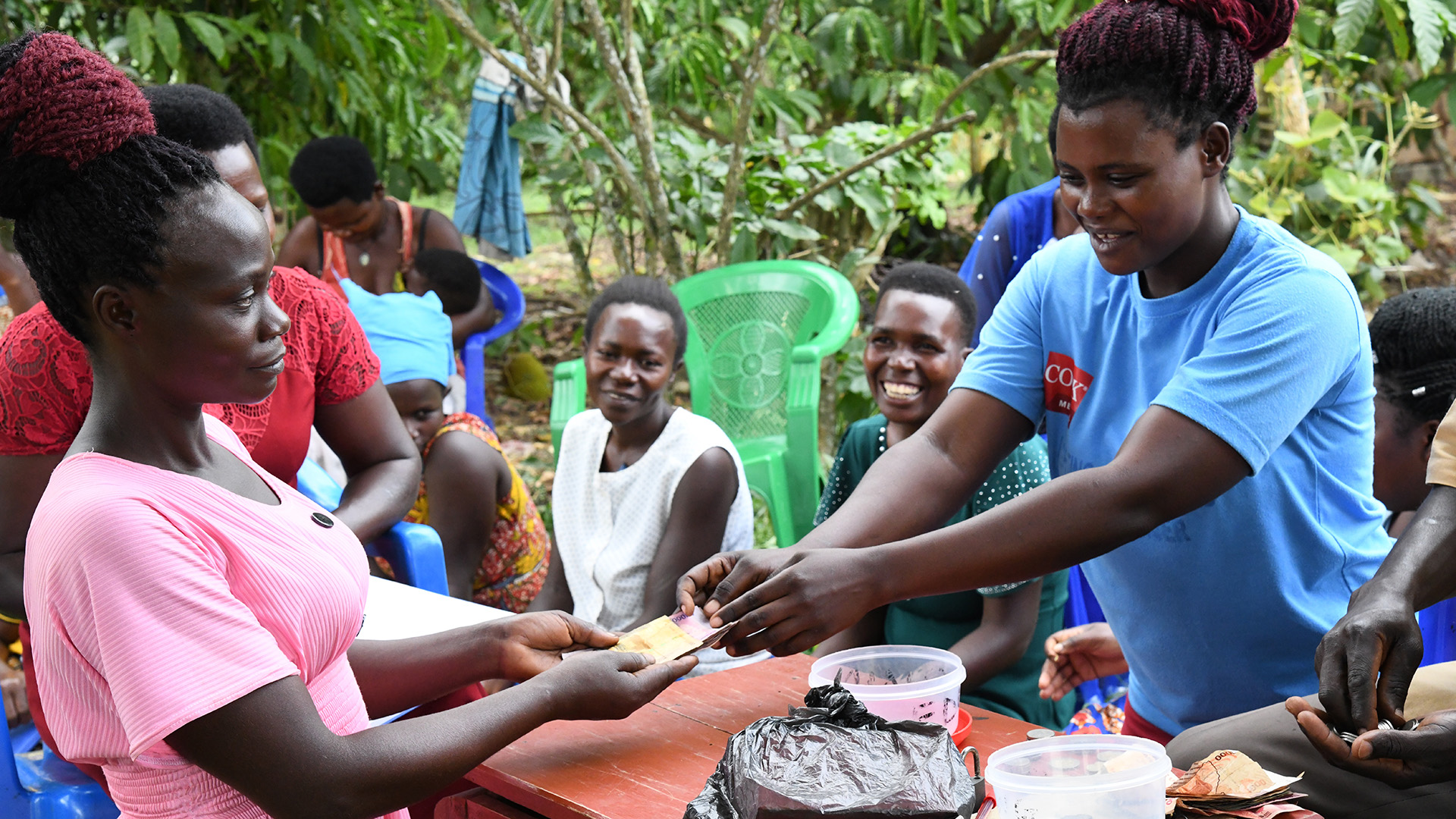
Village Savings and Loan Association
The Kabale United Women’s Group was trained in financial and business management and now runs a Village Savings and Loan Association. Through this scheme, members can access finance and start income-generating activities that do not deplete forest resources. Group members can invest their savings in the association’s fund and gain interest. Other members can access the savings for investments, in return for paying the interest. The fund is transparent and entirely managed by group members at open meetings.
Kyomuhendo Sayuni used to cultivate crops in the forest reserve illegally. With a loan from the Village Savings and Loan Association, she has now established a retail and snack shop that makes a profit, enabling her to save and reinvest in her business or in the association.
“I now have no business with the forest. I’m happy that we have left it to regenerate so that we can benefit from clean air and a better environment in the near future.”
- Kyomuhendo Sayuni, member of the Kabale United Women’s Group
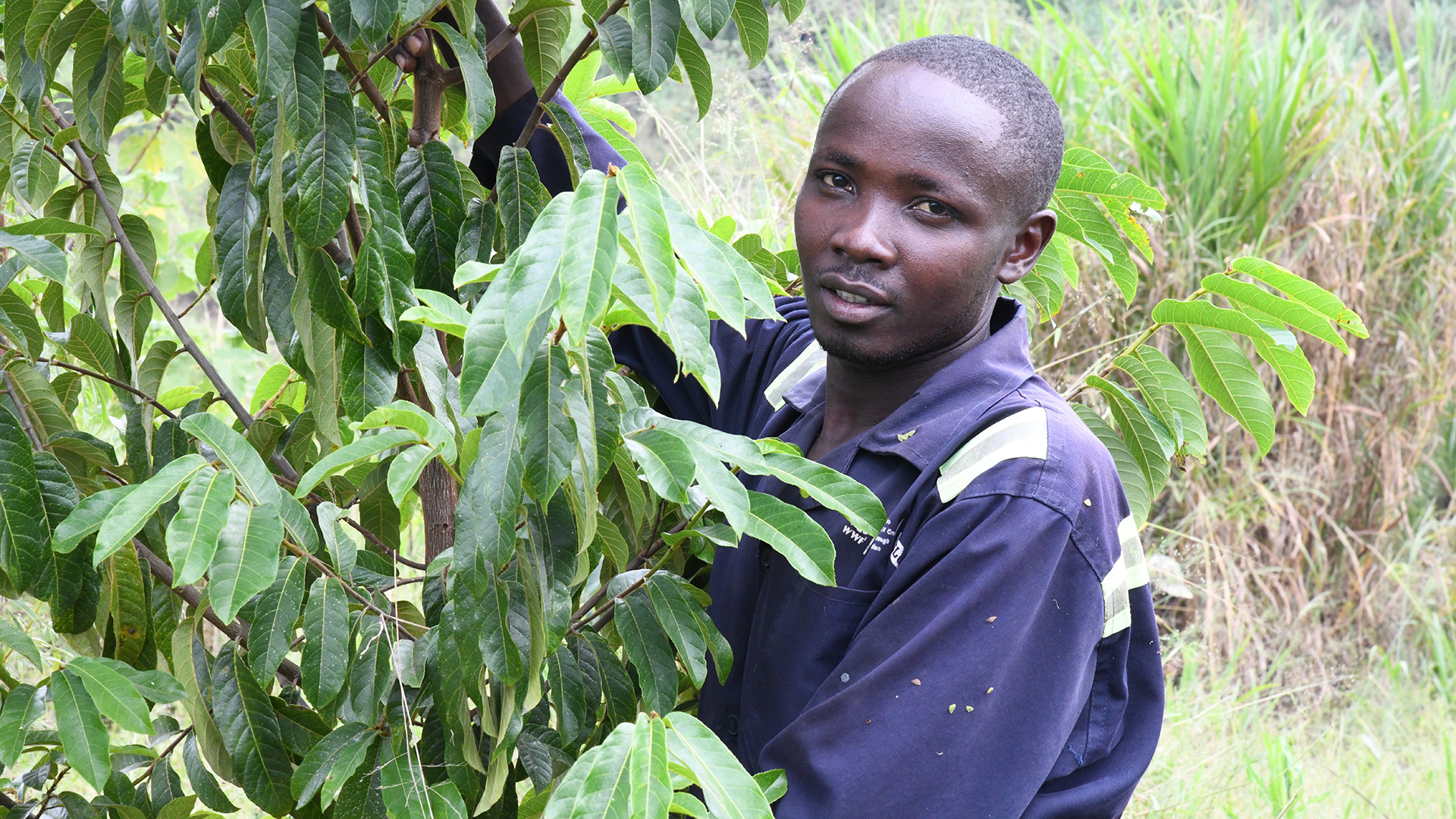
Forest restorers
Restoring degraded forests is a labour-intensive exercise, and many community members near Kagombe Central Forest Reserve are needed for the restoration of the forest. They are earning an additional income by preparing the land for replanting, planting seedlings, and keeping the area clear of elephant grass.
Asiimwe Joseph is one of these people. He used to make his living by harvesting timber illegally and by burning charcoal. As the trees disappeared, he started growing crops illegally in the forest reserve. Now part of the forest regeneration project, he has a new source of income and works closely with WWF and NFA to regenerate the heavily degraded Kagombe Central Forest Reserve.
“WWF together with NFA came and made us aware of the need to regenerate the forest to secure the future of our health and livelihoods.”
- Asiimwe Joseph, Community forest generator
These are some of the initiatives that the Uganda project has started in collaboration with the local communities living adjacent to the Kagombe Central Forest Reserve. They are reducing the pressure on the forest and improving the living conditions for the local people. Other measures are coffee cultivation, and goat and chicken rearing. Over the lifetime of the Ugandan forest project, WWF expects living conditions to improve for more than 2,000 families in the area.
The forest project in Uganda extends over four Central Forest Reserves: Kagombe, Bugoma, Kitechura and Ibambaro spanning approx. 28,000 ha. The area, which is part of the Albertine Rift that spans over six countries in East Africa, has exceptional biodiversity with 6,586 plant species and 1,833 terrestrial vertebrates in its tropical forests. One of the worst affected areas, Kagombe, has seen a deforestation rate of 73% in the past decade.

